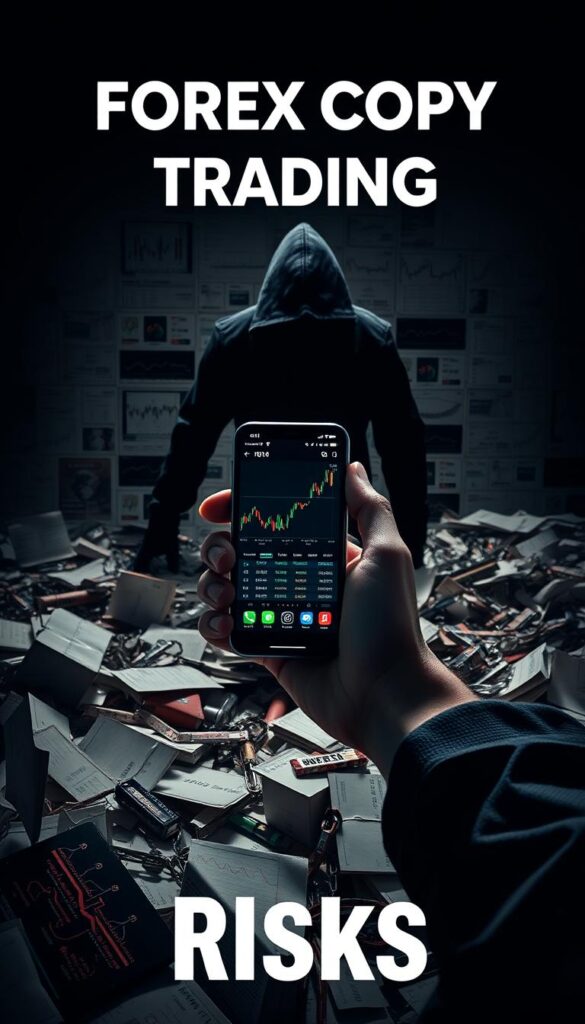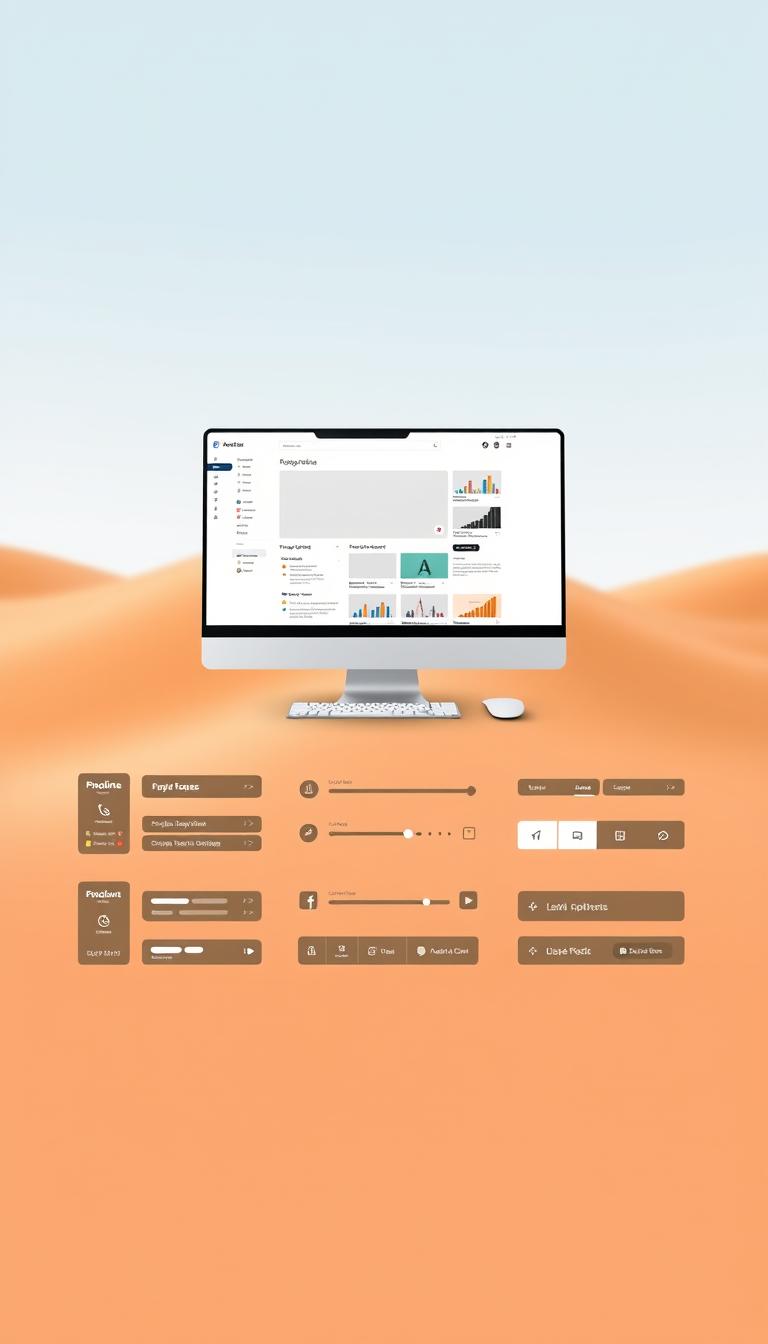
Investing can be complex, so we often look to those who know what they’re doing. US senators, with their experience, can be a good guide. The STOCK Act of 2012 makes their trades public within 45 days, giving us a peek into their strategies.
Websites like Unusual Whales and Capitol Trades turn this data into useful tips. By using this info on a social trading platform, we can make smarter choices. This way, we can learn from their investment wisdom.
Key Takeaways
- Understand how the STOCK Act impacts congressional trade data disclosure.
- Discover how to access compiled data on US senators’ investment decisions.
- Learn how to leverage this information on a social trading platform.
- Gain insights into the investment strategies of influential policymakers.
- Make more informed investment decisions using these valuable insights.
Understanding Copy Trading and Its Popularity
Copy trading has grown in popularity with the rise of automated trading systems. It lets investors follow the trades of experienced pros. This can lead to better investment results.
What Is Copy Trading?
Copy trading lets people automatically follow the trades of other investors. It’s done through special platforms. This mirror trading strategy helps new investors learn from experts.
For instance, someone might copy a successful hedge fund manager or a skilled day trader. This way, they can get similar results without doing all the research themselves.
Benefits of Copy Trading for Investors
Copy trading has many benefits. First, it helps investors diversify their portfolios by copying trades in different areas. Second, it saves time on research since the investor relies on the copied traders’ knowledge.
| Benefit | Description |
|---|---|
| Diversification | Replicate trades across various assets and markets |
| Time-Saving | Rely on expertise of copied traders |
| Learning Opportunity | Gain insights into strategies of successful traders |
Also, copy trading is a learning opportunity for investors. By seeing how successful traders work, investors can learn about market trends. This helps them make better investment choices.
As we delve deeper into copy trading, its appeal is clear. It makes investing easier and can lead to higher returns. By understanding copy trading, investors can make smarter choices about their investments.
Who Are the Influential Investors?
US senators’ investment strategies are getting a lot of attention, especially their use of copy trading. They have been successful in their work and show a deep understanding of the financial markets.
Key US Senators Engaging in Copy Trading
Many US senators are into copy trading, using their knowledge to make good money. For example, Senator Paul Pelosi has made smart investment choices, often beating the market. He watches market trends closely and changes his strategies as needed.
Other senators have shared their investment moves, giving us a peek into their strategies. By looking at their methods, we can learn more about investing and find new chances.

Profiles of Notable Trade Strategies
Let’s dive into the trade strategies of some influential senators. Senator Pelosi’s portfolio is a mix of stocks, bonds, and more. This mix helps him manage risks and grab opportunities.
“The key to successful investing is not just about picking the right stocks, but also about understanding the broader market trends and adjusting your strategy accordingly.” – Senator Paul Pelosi
Here’s a table showing the senators’ copy trading strategies and the assets they use:
| Senator | Investment Strategy | Common Assets |
|---|---|---|
| Paul Pelosi | Diversified portfolio with a focus on market trends | Stocks, Bonds, ETFs |
| Other Senators | Varied approaches including technical analysis and long-term investing | Real Estate, Commodities, Currencies |
Learning from these senators can help us improve our own investment choices in copy trading.
How Senators Are Using Copy Trading
US senators are now using copy trading as a smart investment choice. We’re looking into why this is happening. By studying their strategies, we can learn more about copy trading and why it’s becoming more popular.
Investment Trends Among Senators
Senators are using copy trading to spread out their investments. This is clear in the success of ETFs like NANC and KRUZ. These ETFs track the trades of Democratic and Republican congress members, showing the senators’ smart investment choices.
The NANC ETF, which follows Democratic congress members, has big investments in tech and healthcare. Meanwhile, the KRUZ ETF, which tracks Republican congress members, focuses on energy and finance.
| ETF | Tracked Trades | Notable Investments |
|---|---|---|
| NANC | Democratic Congress Members | Technology, Healthcare |
| KRUZ | Republican Congress Members | Energy, Finance |
Common Assets and Markets They Target
Senators are investing in stocks, bonds, and commodities through copy trading. The best copy trading platform lets them follow the trades of skilled investors, aiming for higher returns.
When picking a copy trading software, senators look for platforms with live data, detailed analytics, and easy-to-use interfaces. These tools help them make smart choices and adjust their strategies as needed.

⭐️ Tap the exclusive deal link https://temu.to/k/uot8tcxvwum to score top-quality items at ultra-low prices. 🛍️ These unbeatable deals are only available here. Shop now and save big! ⭐️ Directly get exclusive deal in Temu app here: https://app.temu.com/m/mhb5rstagbx
Another surprise for you! Click https://temu.to/k/uag0bn0o0wd to earn with me together🤝!
By studying senators’ investment trends and strategies, we can learn a lot about copy trading. As we delve deeper, we’ll look at the effects of their choices and how they might help other investors.
The Impact of Legislation on Trading Strategies
The laws in the US greatly affect how senators trade. Looking into their investment choices shows how big of a role laws play.
Legislation changes how open and honest senators’ trading is. The STOCK Act is a big step towards making trading more transparent.
Transparency in Legislative Trading
The STOCK Act, passed in 2012, tries to stop insider trading. It makes senators and other officials report their trades within 30 to 45 days. This law helps the public see what senators are investing in.
But, some still worry about insider trading. They say the 30 to 45-day wait is too long. It lets the market change before everyone knows.

Recent Policies Affecting Senators’ Investments
There’s been a lot of talk about new laws for senators’ trading. Some ideas are to limit or ban certain investments. This could include those in companies that senators have influence over.
For example, some laws want to stop senators from investing in companies they can affect. This is to avoid conflicts of interest and insider trading.
Watching senators’ trades is important. We need to see how new laws change their strategies. This affects the copy trading network and social trading platform users too.
Analyzing the Performance of Senators’ Trades
Looking at senators’ trades helps us understand their investment skills. It shows if they have a solid strategy or just make smart guesses.
To judge their success, we look at several things. These are the return on investment (ROI), how often they trade, and what they invest in. This helps us see if their trades are winning and if they use good strategies.
Metrics to Evaluate Trading Success
Several important metrics help us judge senators’ trade performance. These are:
- Return on Investment (ROI): This shows how much profit or loss an investment makes compared to its cost.
- Trade Frequency: How often they trade tells us about their activity level and risk.
- Asset Allocation: Knowing what they invest in helps us understand their risk level and strategy.
Research shows mixed results on congressional trades. Some senators beat the market, while others don’t. For example, senators who invest in tech stocks might see better returns than those in other sectors.
| Metric | Description | Example |
|---|---|---|
| ROI | Measures the gain or loss generated by an investment | 10% ROI indicates a profitable investment |
| Trade Frequency | Number of trades made within a specific period | 5 trades per quarter |
| Asset Allocation | Types of assets invested in | 60% stocks, 40% bonds |
Case Studies of Successful Investment Moves
Let’s look at some examples of senators’ successful investments. For instance, a senator might invest in a new tech company and see big returns. Another might spread their investments across real estate to lower risk.
These examples give us a peek into senators’ strategies and how they succeed. They help us understand the complexity of investment decisions and what makes them work.

Automated trading systems and mirror trading strategies also impact senators’ trades. These tools help copy successful trades, which can boost returns.
Tools and Platforms for Copy Trading
To start copy trading, you need to know the tools and platforms available. Copy trading lets you follow the trades of skilled investors. It’s popular because it makes investing easier.

Many platforms cater to copy traders, even those used by US senators. These platforms have features that improve your trading experience.
Popular Platforms Used by Senators
Platforms like Unusual Whales give insights into lawmakers’ trades. ETFs like NANC and KRUZ let you track congressional trading. This way, you can follow the investment moves of senators and representatives.
These platforms are known for their transparency and valuable data. They help investors make better choices for their strategies.
Features to Look for in Copy Trading Platforms
When picking a copy trading platform, look for certain features. These include:
- Ease of Use: A simple interface makes trading easier.
- Fees and Charges: Knowing the costs helps avoid surprises.
- Performance Tracking: It’s important to see how the traders you follow are doing.
- Risk Management Tools: Tools like stop-loss orders help protect your investments.
| Platform | Key Features | Fees |
|---|---|---|
| Unusual Whales | Congressional trade data, transparency | Subscription-based |
| NANC ETF | Tracks senate investment activities | Management fees |
| KRUZ ETF | Tracks house investment activities | Management fees |
By looking at these features and costs, you can pick a platform that fits your investment goals.
Risks Involved in Copy Trading
Copy trading comes with risks like market volatility and ethical issues. It’s key to grasp these risks when trading with US senators and other officials. This knowledge helps in making smart investment choices.
Understanding Market Volatility
Market volatility is a big risk in copy trading, especially in forex copy trading. Market changes can happen fast and be hard to predict. When you follow trades from skilled investors, you face the same risks they do.
To lessen these risks, knowing the trading strategies of the investors you follow is vital. For example, if a senator invests a lot in a certain stock, knowing their strategy can help you guess market moves.

Potential Ethical Considerations
Copy trading also brings up ethical questions, especially with public figures like US senators. There’s a thin line between copying their strategies and getting insider info.
To deal with these ethical issues, knowing the laws about congressional officials’ trades is crucial. This knowledge helps you decide whose trades to follow more wisely.
| Risk Factor | Description | Mitigation Strategy |
|---|---|---|
| Market Volatility | Rapid and unpredictable market fluctuations | Diversify your portfolio and stay informed about market trends |
| Ethical Concerns | Potential for insider information | Be aware of transparency laws and regulations governing trades by public officials |
Understanding the risks of copy trading and how to avoid them can lead to better investment choices. This approach can help you achieve better results in your investment journey.
Engaging with the Community: Senator Insights
In the world of copy trading, it’s key to connect with others and learn from experts like US senators. Building a network and sharing knowledge are essential for success in investing.

How Senators Share Investment Tips
US senators, with their deep financial market experience, share their insights widely. They give interviews, speak publicly, and use social media. This helps create a strong copy trading network for all investors.
Even though they don’t run a social trading platform, their investment moves are watched closely. This helps spot trends and strategies worth copying in copy trading.
Building a Network for Collaborative Trading
Creating a network for trading together means building a community. Here, investors can share and learn from each other. This can happen through online forums, social media, and special copy trading platforms.
Being part of these networks lets investors tap into a lot of knowledge. They can learn from market analysis and strategies of successful traders, including US senators. This teamwork makes the investment community more informed and connected.
To build and engage with a copy trading network, consider these steps:
- Find reliable sources of investment info.
- Join online forums and groups.
- Use social trading platforms to follow and learn from pros.
By following these tips, investors can better understand the markets. This can lead to better investment choices and a more lively copy trading network.
Comparing Copy Trading to Traditional Investing
The world of investing has many strategies, like copy trading and traditional investing. Knowing the differences between these can help investors make better choices.

Differences Between Strategies
Copy trading lets you follow the trades of skilled investors, often with an automated trading system. It’s great for new investors to learn from the pros. Traditional investing, however, means making your own decisions after doing your own research.
Copy trading is more hands-off. You follow the strategies of others through mirror trading strategies. Traditional investing, though, requires you to stay active and adjust your portfolio often.
Advantages of Each Approach
Copy trading can reduce risk and teach you from experienced traders. But, you have less control over your investments.
Traditional investing gives you full control over your decisions. It’s flexible and lets you quickly respond to market changes. But, it needs a lot of time, knowledge, and experience to succeed.
In summary, both copy trading and traditional investing have their pros and cons. Understanding these can help investors pick the best strategy for their goals and risk level.
Learning From the Senators’ Successes
Looking at how US senators invest can teach us a lot. We can see what makes their trading successful. This helps us understand their thought process and how they make choices.
Key Takeaways from Senate Investments
Senators use both old and new ways to invest. Some important things we learn from them are:
- Diversification: They spread their money across different types of investments to reduce risk.
- Long-term focus: They aim for long-term gains, not just quick profits.
- Market research: They do deep research before investing.
For example, a senator might put money in stocks, bonds, and real estate. This mix helps them avoid big losses and get better returns.
Adapting Their Strategies to Our Needs
We can’t exactly copy senators’ investment plans. But we can make their ideas work for us. Here’s how:
- Know our own financial goals and how much risk we can take.
- Keep up with market trends and changes in laws.
- Use the best copy trading platforms to follow successful traders and adjust our plans.
By learning from senators and tweaking their strategies, we can improve our investing. This way, we can make smarter choices.
Future of Copy Trading in Politics
The future of copy trading in politics is exciting and full of changes. The way we invest is always changing, and copy trading among US senators is no different. We must keep up with what’s happening.

Trends We Should Watch
Several trends will shape the future of copy trading in politics. The rise of social trading platforms makes it simpler to follow and copy trades. This includes those of experienced investors, like senators. Also, copy trading networks are becoming popular, offering a chance to diversify investments.
Another trend is the push for more transparency in how lawmakers trade. As rules get stricter, we’ll see more openness in trading activities. This could change how senators use copy trading.
| Trend | Description | Potential Impact |
|---|---|---|
| Rise of Social Trading Platforms | Easier access to follow and replicate trades | Increased participation in copy trading |
| Growing Interest in Copy Trading Networks | Diversified investment portfolios | Reduced risk for investors |
| Increasing Transparency | Stricter disclosure requirements | More ethical investment practices |
Potential Changes in Regulations
Regulatory changes are key to the future of copy trading in politics. We might see more checks on trading and stricter rules for senators and public officials.
It’s crucial to keep an eye on these changes. The future of copy trading will blend new tech, changing investor interests, and laws.
Conclusion: Our Path Forward in Copy Trading
Looking back, we see that copy trading can really help investors. By learning from US senators, we can make better choices. They show us how to use automated trading systems wisely.
Key Takeaways and Future Directions
Senators’ experiences with copy trading teach us a lot. They share important lessons on managing risk and finding good opportunities. This knowledge is very useful.
Promoting Responsible Trading Practices
Going forward, we must focus on trading responsibly. We need to know the risks of copy trading and use automated systems carefully. This way, we can enjoy its benefits without the downsides.
By being smart and informed in copy trading, like US senators, we can improve our investments. This will help us reach our financial goals.



